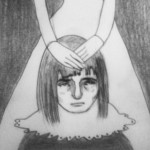
Dr. med. Wolfgang Wöller
The tendency of victims of physical or sexual childhood abuse to become revictimized in later life has well been documented empirically. Moreover, there is a high stability of violent and abusive relationships. The aim of this paper was to summarize perspectives from psychodynamic theory, attachment theory, and posttraumatic stress research to explain revictimization phenomena. The term repetition compulsion has little explanatory valuewithout additional theoretical assumptions.
Within the psychodynamic framework, an ego-psychological view conceives trauma repetition as an attempt to master traumatic experience, while in the object relations perspective, revictimization is explained by the influence of traumatic introjects. Negative cognitions of being worthless, bad and guilty can endorse the conviction that abuse is justified and reduce the capacity of self-care. Negative learning experiences from traumatic helplessness and powerlessness account for low self-efficacy expectations and prevent the establishment of self-boundaries. Trauma repetition can also be understood as an enactment in the service of affect regulation. Research in the field of attachment theory identified attachment styles predisposing to revictimization. Research dealing with posttraumatic stress disorder emphasizes the importance of traumatic affects recurring in daily life and, consequently, the tendency of abuse victims to actively produce dangerous situations in order to cope with these affects, furthermore, the role of dissociation in missing warning signals of impending traumatization. For therapeutically addressing revictimization, a detailed analysis of underlying phenomena is required.
The abstract is taken from the text “Trauma Repetition and Revictimization Following Physical and Sexual Abuse” from the book “Trauma and Personality Disorder” by Dr. med. Wolfgang Wöller. Dr. med. Wolfgang Wöller is a specialist in Psychosomatic Medicine and Psychotherapy, Neurology and Psychiatry, and also a psychoanalyst.
You can read the whole text (PDF) here.




